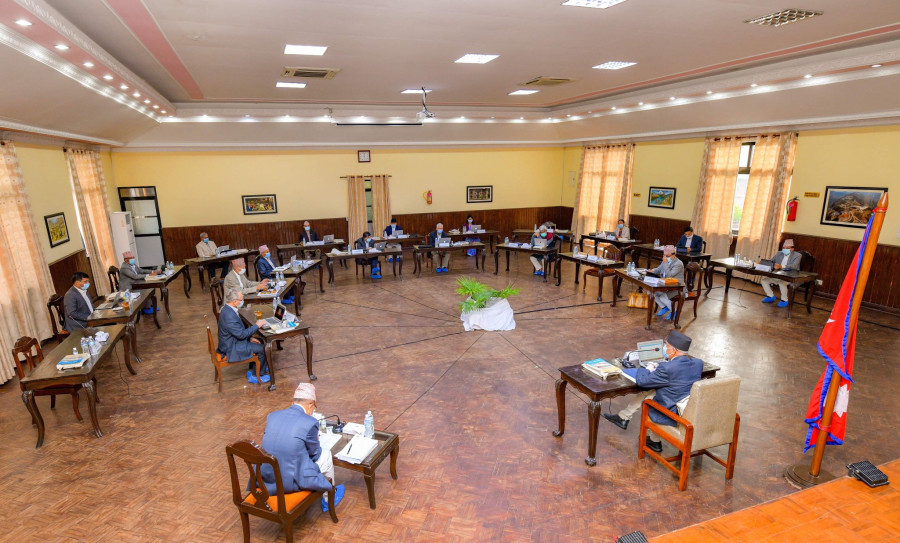National
Everything you need to know about Monday’s Cabinet decisions on Covid-19 containment measures
Schools will remain shut, and regular domestic and international flights won’t resume on Aug 17, as was announced earlier.
Post Report
The Cabinet on Monday night took a slew of decisions to curb the spread of coronavirus, but didn’t make them public. On Tuesday, however, the government published a list of rules in line with the decisions taken by the Cabinet a day earlier to contain the spread of coronavirus.
Here’s a run-down of the major decisions made public on Tuesday:
International and domestic flights and long-distance public transport will remain suspended until August 31. The decision supersedes the one made public in July that said regular domestic and international passenger flights would resume from August 17.
The government has decided to allow only takeaway services at hotels and restaurants. Earlier on July 20, the Cabinet had decided to allow hotels and restaurants to resume services from July 30 by adhering to safety protocol.
The government has decided to continue restrictions on entry points into Nepal from India until September 16 midnight, except for goods and cargo and Nepalis returning home. It has decided to designate 10 entry points for Nepalis to return home, down from the 20 designated earlier. They are: Kakarvitta (Jhapa); Rani, (Morang), Madar (Siraha), Gaur (Rautahat), Birgunj (Parsa) Belahiya (Rupandehi), Krishna Nagar (Kapilvastu) Jamunah (Banke), Gauriphanta (Kailali) and Gadda Chauki (Kanchanpur). According to Yubaraj Khatiwada, spokesperson for the government, those violating the restrictions would be punished as per prevailing laws.
The government says that offices (both governmental and non-governmental) based in districts that have reported more than 200 coronavirus cases, and those in the Kathmandu Valley— including banks, cooperatives, financial institutions and all other organisations that have direct contact with people—to manage delivery of services electronically. These offices should mobilise only 50 percent of their staffers.
Offices where services through online, virtual or electronic media aren't possible and whose staffers need to come in contact with the public regularly should be shut. Offices concerned should manage the delivery of services and provisioning of human resources in coordination with the District Covid Crisis Management Centre.
The government has banned vending of vegetables, fruits, and clothes on footpaths, pushcarts and bicycles, and collection of scraps.
The Cabinet decided to allow factories to operate in Kathmandu Valley only if they set up private quarantines ensuring strict health protocols. All projects, factories and other industries need to provide food and shelter to their workers on their premises. The meeting also decided to order factories and projects not to bring workers from outside.
Restrictions are still in place for all schools, colleges, tuition centres and training centres, gatherings, and meetings. The Cabinet has decided to monitor such activities and take legal action against those who violate the orders.
All the religious activities and gatherings are banned, except for daily prayers festivals observed among family members at home.
The meeting has decided to allow repatriation passenger flights to bring in not more than 500 people from abroad daily. As per the decision, 300 of the passengers should be brought based on recommendations by diplomatic missions and 200 under the Foreign Employment Welfare Fund repatriation programme. The repatriated people should be kept in quarantine in Kathmandu valley and sent to home after making sure they are not infected. The health ministry shall take the responsibility to test returnees after 5-7 days of their arrival.
Inter-district travel remains restricted to and from districts where 200 infections have been reported. Only those that have permission from the District Covid Crisis Management Centre and Local Administration will be allowed to travel from one district to another. Passes will be issued only for essential purposes.
Analysing the rate of increase in the number of infections, the government has decided to make provisions for more hospital beds to keep the infected in isolation. After assessing the capacity of hospitals around the country, the government has decided to designate the health ministry to manage the treatment of those infected people who show symptoms of the disease and prepare private hospitals and teaching hospitals as alternatives to government-run facilities by equipping them with necessary resources.
The ministry shall also make arrangements to strengthen services in areas facing shortages of health workers due to spikes in the number of infected.




 20.12°C Kathmandu
20.12°C Kathmandu













